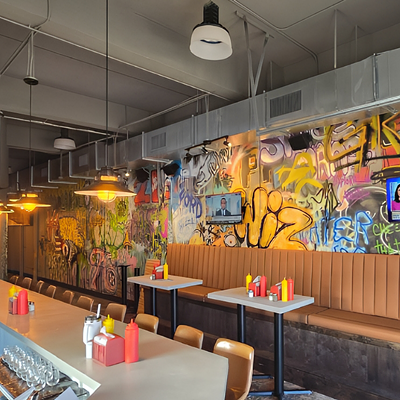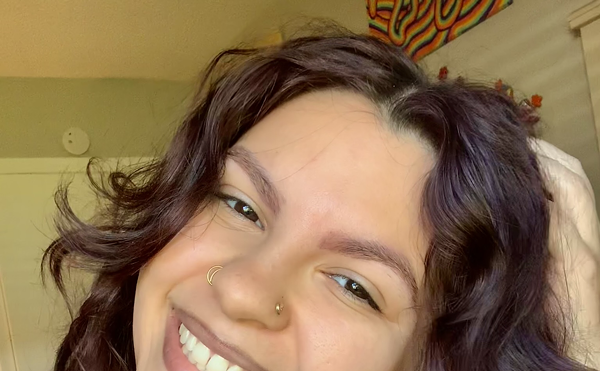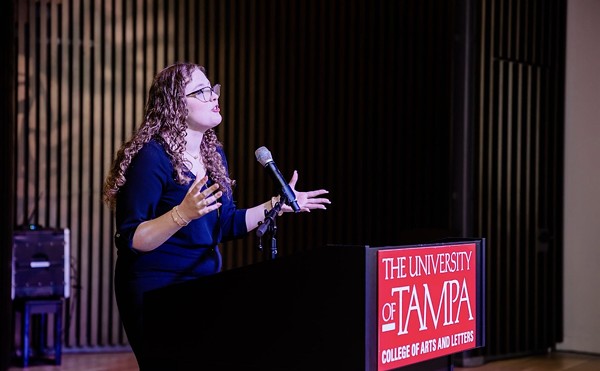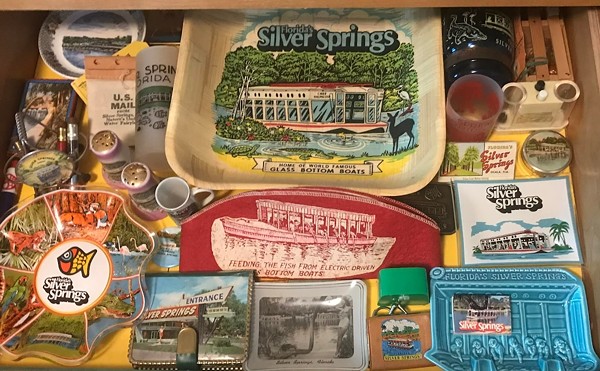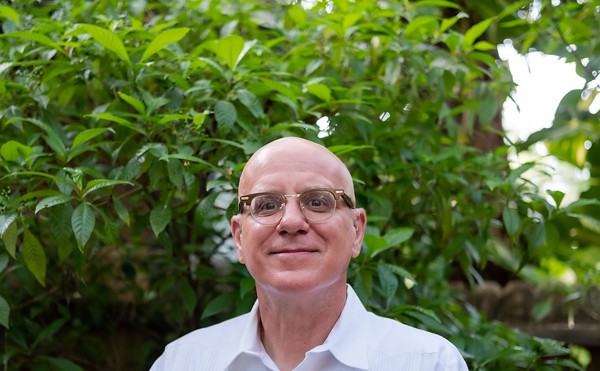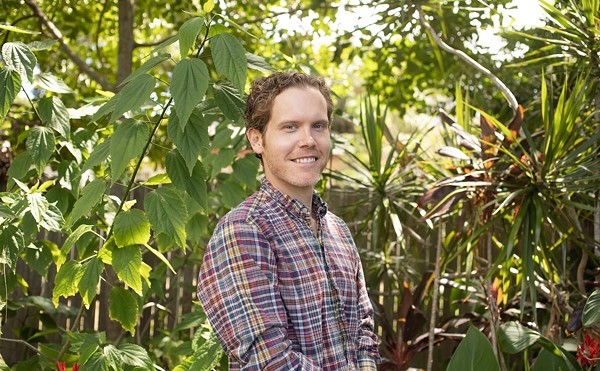“Napalm! It’s a jelly! It explodes! It sticks to you!”
I stood on Uncle Herb’s screened in porch, both of us leaning against the red-felt pool table. We’d just met through an alligator wrangler I was trailing for a story (I’ll write about him later) who had disappeared inside the house. I had no intention of meeting Uncle Herb. I’d met the gator wrangler for breakfast in Bonita Springs at this fantastic roadside diner called Dixie Moon, which has since folded, when he told me there was somebody I had to meet. I’d discovered that falling in with alligator wrestlers in the Everglades often jettisoned me into a strange ganglion of relationships that including nothing but outlaw poet types operating on a strict and incomprehensible code of ethics as such folks stereotypically do. Uncle Herb was something of a legend in the Naples animal underground circuit that stemmed from the family who started a roadside wild park that became Naples Zoo. I never found out his last name, but the wrangler briefed me with these two facts: He served free breakfast to the kids in his church the first Sunday of the month and he was a medic in Vietnam.
I asked Uncle Herb about his tour in Vietnam. He told me about children helicoptered in after the napalm bombs hit the villages. By the look on my face, he saw that I was the kind of person who didn’t know shit about napalm.
Six medium-to-large bird cages crowded the porch full of green parrots, blue and gold macaws, an African grey, a few parakeets, and one sweet-mannered, peach-tinted Moluccan. Another cage held a pair of grey and gold parakeets in explosive plumage except both plucked out the other’s head feathers. If you’ve never seen a bald parakeet head, it looks like mummified penis. So, just imagine that but covered in lustrous Confederate feathers from the neck down, and you’ll understand the scene. Multi-bird twittering, chittering, clucking and whistling created a jug-band symphony as Herb eyeballed me through his drugstore bifocals.
Herb was probably in his late 60s with long, combed-back white hair that floats past his shoulders, fine and wispy like gossamer, some of it still tinged in haystack yellow. He had a white two-by-four for a beard that ended right before the first closed button on his white Green Bay Packers oxford shirt, self-converted to short sleeves and methodically hand-fringed. The frays were meticulous, evenly spaced, of approximately equal height and width, about half a pinkie finger. Some knotted, others not. Uncle Herb wore black denim shorts with white ankle socks but no shoes. Later, alone with him in his closet a few weeks from this moment, I discover that every single shirt Uncle Herb owns is de-sleeved and fringed exactly like this one.
He and his wife, every first Sunday of the month for 25 years, hosted a free breakfast at their house for the kids in their church, as they’d done before the gator wrangler and I showed up unannounced. “But anyone can come,” he told me. They pay for the food themselves and let people stay as long as they want. This Sunday, I met a woman and her 10-ish year-old son. Herb announced she had grown up in his house on Sundays. He knew her when she was the boy’s age. Then he laughed out of nowhere, a startling trait that blasts his cottony mustache whiskers to expose his sturdy teeth, the kind that gave rise to the phrase “chompers.”
Herb was part wind-up toy, part Santa Claus, punctuating his stories by thrusting his pointer finger in the air and staring at me over his bifocals. He paced. He gesticulated. He would either hop or clap or bob or stand dead still and stare deep, deep down into your eyes as if he was looking for what you’d hidden in there.
He laughed at the end of his Vietnam stories when people died anyway; Uncle Herb’s life seemed to have instilled in him the belief that irony is a jolly good practical joke.
He scrolled through his phone for pictures as he heralded me with field stories about his relief medical work in Haiti after the 2010 earthquake and how gory, backwards and graphic the rubble injuries were.
“Have I got something to show you!” he said, tapping through hundreds of photographs with a black stylus.
[About Haiti: “before the earthquake, after the earthquake, it all looks the same. If you ever go there, take everything — your own food, your own water — and when you leave, leave it all there, clothes and all. Burn it.” Laughter.]
He enjoyed himself, his baby blue eyes searching mine whenever he looked up from the phone. His storytelling took a sharp left back to children in helicopters in Vietnam. His eyes smiled, full of mirth, but there was something else in there, too, an edge. Uncle Herb inched closer to me, peering through his bifocals.
I needed to get the message about napalm.
“It sticks,” he repeated, mimicking napalm blobs plastering on my forearms with his fingertips. Unsatisfied that this demonstration sufficiently registered, he repeated himself, louder. “I mean it sticks!” he said.
I nodded. Then he clapped me on the side of the head like an over-zealous five-year-old in a pumpkin patch.
“Uncle Herb just smacked me in the face,” I said.
Then he cupped my face in the palm of his hand for a second before telling me that the next trick of napalm is that it starts to burn, and it doesn’t stop. We stand-off, everything on the porch a madhouse held together by the coo-coo of Confederate-plumed penis birds.
Then he laughed. He let go of me. My cheek burned with a soft, scolding pang.
That was only the first of several re-enactments Uncle Herb performed on me over the course of the afternoon. The second: dehydration symptoms on my leg. The last: a personal tutorial on how to perform surgery on a double harelip using my face as the demo model.
“You know that’s where I learned about maggots?” he asked, tripling back to the topic of napalm after he admired his imagined handiwork on my make-believe double harelip. “You just dump ’em in there!” Pretend dumping of maggots into pretend wound on my forearm. “Bandage it!” Simulated bandaging with a roll of gauze, “and a few days later,” unwrapping of the bandage, “all clean! It’s remarkable. I’ve never seen anything so thoroughly clean a wound in all my life.”
“The maggots eat the napalm?” I asked.
“No! You scrape that out with a knife.” He whipped out his black stylus, sliding the side of it on my cheek. “Like so.”
“Got it.”
My afternoon with Uncle Herb was the one and only time conversation had been a contact sport. I admit I was not prepared. It wasn’t just me. He grabbed the kids as they walked by–their heads, their shoulders, their faces — sometimes for hugs, sometimes because they walked by. More than once I watched him scoop up someone’s face as they passed through the porch, shaking and laughing and hugging them.
Uncle Herb, slightly irritated by the need to go into such a detailed explanation with me about napalm, returned to his cache of photos until he found the one I needed to see. “Ah-HA! Here! Look at this!” His screen displayed an X-ray of someone’s skull and neck vertebrae.
A sliver line, about two inches long, appeared in the esophagus. “Do you see that!” he asks, as if we puzzled over never-before-seen dinosaur fossils. Uncle Herb marveled. He exclaimed. He pinched the picture until the line expanded into an almost-familiar object: sharp point at end, rounded head.
“What is it?” I ask.
“A STRAIGHT PIN!” He was ecstatic. “In this girl’s throat! She swallowed it! Do you know how many times we’d have to cut to get in there! Four or five! It would be so painful! What do you do with that? You’re in Haiti!”
“I don’t know,” I said. I pondered by blocking my throat with my hand.
“So I ask around! They say to me ‘straight banana diet.’ Because–” and then he waved his hands down his body, from his throat to his large intestine, “–the bananas coat the system and the straight pin passes. And every day you take X-rays to see where the stupid thing has journeyed to on its way out.” Boom, boom, boom, he pointed at my chest, my guts, my exit area.
“Cool,” I said. Although, you still have to poop out a straight pin. “How long would it take to pass?”
“Few days. Yes! Very cool! And I never would have learned that otherwise. Bananas!” He smiled, his chompers agleam, his eyes on fire.
“Bananas,” I said.
When I left Uncle Herb’s, I said goodbye to the birds, who had all but gone silent. All the kids, their parents, and the day were long gone.
He shoved his feet into some shoes and walked me to my car. Somehow, we connected. Somehow, over the course of that bizarre afternoon, Uncle Herb and I became friends.
I drove home pondering the epigram to E.M. Forster’s British masterpiece, Howard’s End — the one that was made into a movie with Anthony Hopkins.
Hardly anything from that novel stuck with me except the epigram. “Only connect…” Forster and his ellipses implore before the novel begins, a sort of wishful command.
Only connect. Forster was right, of course.
But it’s crazy what that means to people.



